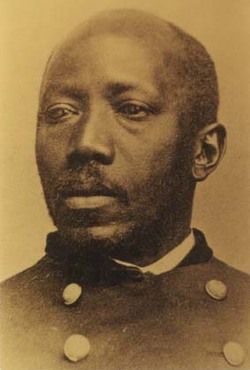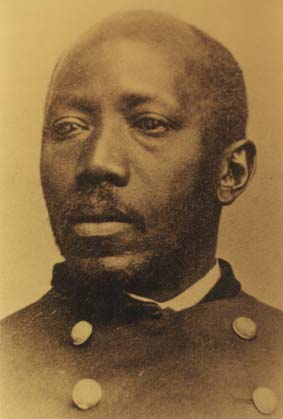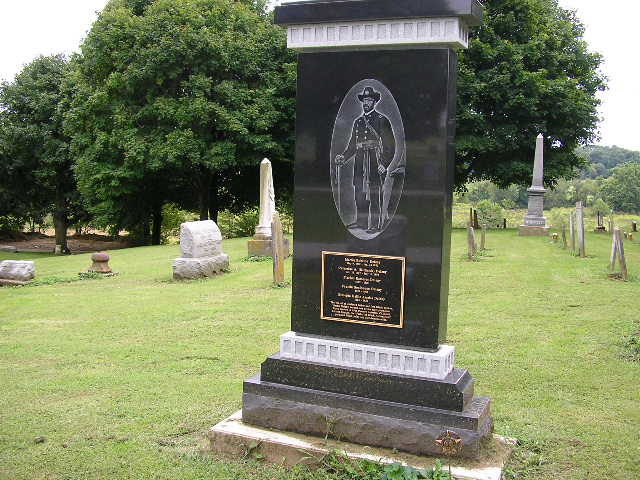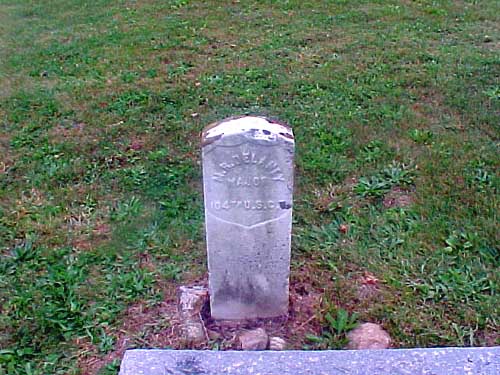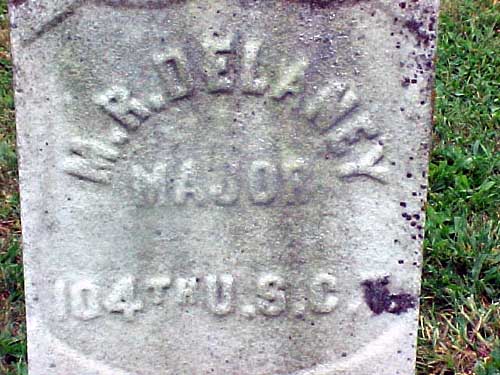Born a free black man, he moved with his family from his birthplace at Charles Town, Virginia (later West Virginia) to Pittsburgh, Pennsylvania, as a child. While studying Greek and Latin at Jefferson College in Canonsburg, Pennsylvania, in 1832, he began to consider the propriety of a "back to Africa" movement for American blacks.
During a cholera epidemic in 1833, he began apprenticing with Dr. Andrew N. McDowell. In 1836, he conceived "A Project for an Expedition of Adventure to the Eastern Coast of Africa" in search of a "Black Israel." In 1837, he became active in the Temperance Movement to curtail widespread whiskey consumption. After he traveled to Louisiana, Texas, Arkansas, and Mississippi in 1839, his experiences become the basis for a semi-fictional novel about an itinerant insurrectionist, "Blake: The Huts of America."
In the 1840s, he studied medicine with abolitionist physicians Dr. F. Julius LeMoyne, of Washington, Pennsylvania, as well as Drs. Joseph P. Gazzam and Andrew N. McDowell of Pittsburgh. Delany then went on an expedition to West Africa (Liberia and Abeokuta in Yoruba country) from 1859 to 1861, and London's International Statistical Congress in 1861.
At the time of the Civil War, he served as a recruiter for the 54th Massachusetts Volunteer Infantry Regiment, whose exploits were represented in the movie "Glory." He desired to see black officers able to command black troops. Following a meeting with President Abraham Lincoln at the White House on February 8, 1865, the Chief Executive wrote a letter to Secretary of War Edwin Stanton recommending Delany to him. In his letter Lincoln said "Do not fail to have an interview with this most extraordinary and intelligent black man." This recommendation led directly to his commissioning as a Major and the first African American line field officer in the United States Army in March 1865. He was given command of the 102nd United States Colored Troops.
After the war he had a multifaceted career as an officer of the United States Freedman's Bureau. At the time of his death, he was a member of the faculty of Wilberforce University.
Born a free black man, he moved with his family from his birthplace at Charles Town, Virginia (later West Virginia) to Pittsburgh, Pennsylvania, as a child. While studying Greek and Latin at Jefferson College in Canonsburg, Pennsylvania, in 1832, he began to consider the propriety of a "back to Africa" movement for American blacks.
During a cholera epidemic in 1833, he began apprenticing with Dr. Andrew N. McDowell. In 1836, he conceived "A Project for an Expedition of Adventure to the Eastern Coast of Africa" in search of a "Black Israel." In 1837, he became active in the Temperance Movement to curtail widespread whiskey consumption. After he traveled to Louisiana, Texas, Arkansas, and Mississippi in 1839, his experiences become the basis for a semi-fictional novel about an itinerant insurrectionist, "Blake: The Huts of America."
In the 1840s, he studied medicine with abolitionist physicians Dr. F. Julius LeMoyne, of Washington, Pennsylvania, as well as Drs. Joseph P. Gazzam and Andrew N. McDowell of Pittsburgh. Delany then went on an expedition to West Africa (Liberia and Abeokuta in Yoruba country) from 1859 to 1861, and London's International Statistical Congress in 1861.
At the time of the Civil War, he served as a recruiter for the 54th Massachusetts Volunteer Infantry Regiment, whose exploits were represented in the movie "Glory." He desired to see black officers able to command black troops. Following a meeting with President Abraham Lincoln at the White House on February 8, 1865, the Chief Executive wrote a letter to Secretary of War Edwin Stanton recommending Delany to him. In his letter Lincoln said "Do not fail to have an interview with this most extraordinary and intelligent black man." This recommendation led directly to his commissioning as a Major and the first African American line field officer in the United States Army in March 1865. He was given command of the 102nd United States Colored Troops.
After the war he had a multifaceted career as an officer of the United States Freedman's Bureau. At the time of his death, he was a member of the faculty of Wilberforce University.
Bio by: Warrick L. Barrett
Family Members
Other Records
Advertisement
See more Delany memorials in:
Advertisement
